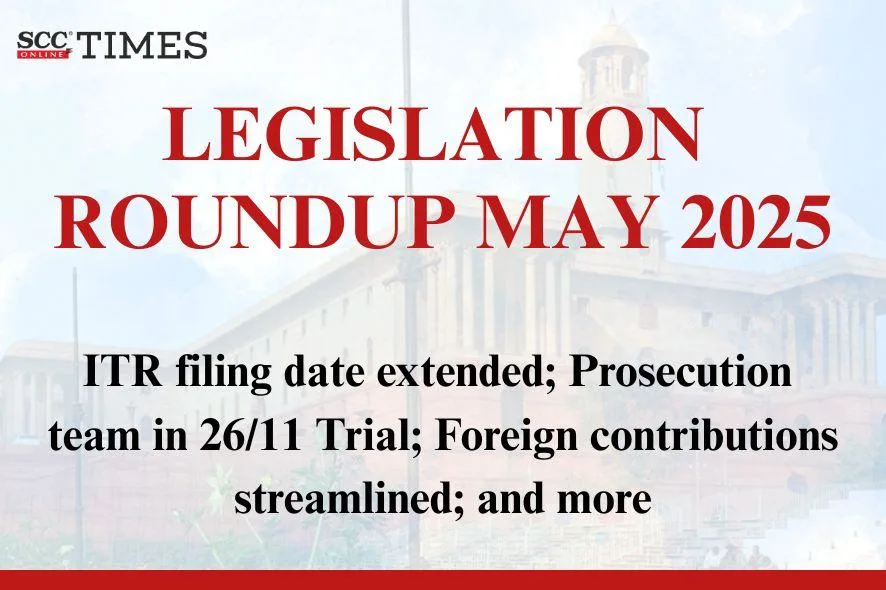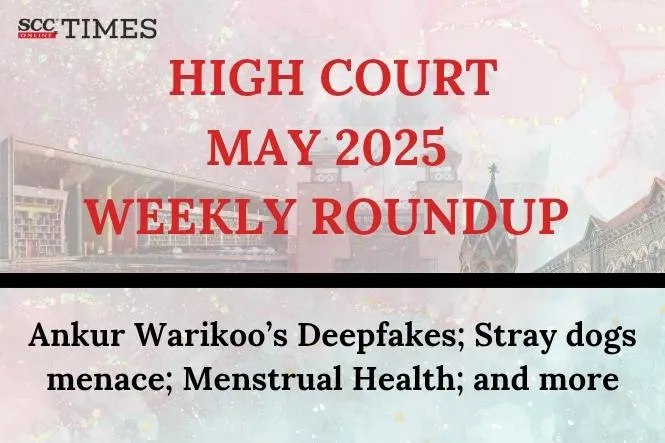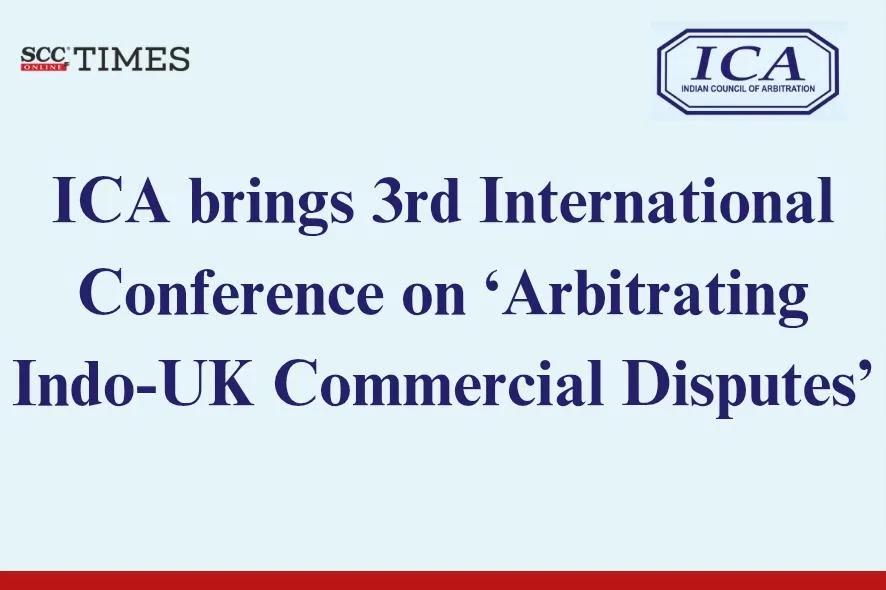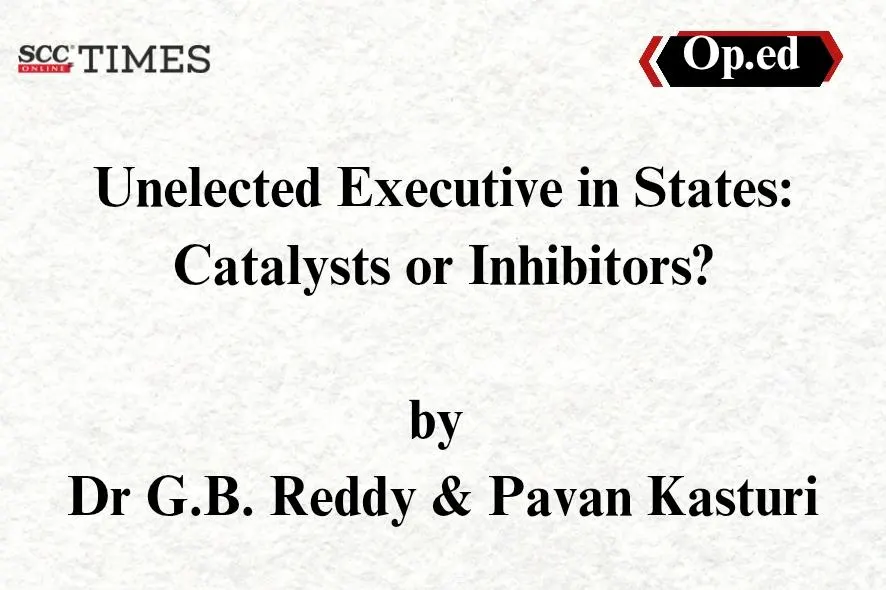Supreme Court: Deciding the question relating to the entertainability of an application by this Court for making an award passed by the arbitral tribunal, when it retains seisin over arbitral proceeding, as Rule of the Court, the 5-judge bench of Dipak Misra, CJ and Dr. AK Sikri, AM Khanwilkar, Dr. DY Chandrachud and Ashok Bhushan, JJ overruled the rulings in State of Madhya Pradesh v. Saith and Skelton (P) Ltd., (1972) 1 SCC 702 and Guru Nanak Foundation v. Rattan Singh and Sons, (1981) 4 SCC 634, wherein it was held:
“when an arbitrator is appointed by this Court and further directions are issued, it retains seisin over the arbitration proceedings and in such circumstances, the Supreme Court is the only court for the purposes of Section 2(c) of the Arbitration Act, 1940.”
Stating that the jurisdiction of a Court conferred under a statute cannot be allowed to shift or become flexible because of a superior court’s interference in the matter in a different manner, the bench explained:
“When arbitrator is not appointed under the Act and the matter is challenged before the High Court or, for that matter, the Supreme Court and, eventually, an arbitrator is appointed and some directions are issued, it will be inappropriate and inapposite to say that the superior court has the jurisdiction to deal with the objections filed under Sections 30 and 33 of the Act.”
The Bench further explained that the Section 39 of the Act provides for an appeal and solely because a superior court appoints the arbitrator or issues directions or has retained some control over the arbitrator by requiring him to file the award in this Court, it cannot be regarded as a court of first instance as that would go contrary to the definition of the term ‘court’ as used in the dictionary clause as well as in Section 31(4) of the Act. The bench said that the Supreme Court:
“may make a reference to an arbitrator on consent but to hold it as a legal principle that it can also entertain objections as the original court will invite a fundamental fallacy pertaining to jurisdiction.”
The Court, hence, overruled the above-mentioned verdicts and all the other verdicts of this Court that state the law on the basis of the said verdicts. [State of Jharkhand v. Hindustan Construction Co. Ltd, 2017 SCC OnLine SC 1458, decided on 14.12.2017]











This is concerning the reportable Judgment dated 5.12.2017 in Civil application 5150/2017, in the matter between Bank of India and Yadav Consultancy services pvt ltd.
The matter arises due to denial of charges of Yadav Consultancy Services Pvt ltd (Court commissioner-receiver) by the Bank of India for the services rendered in its interest, but as per orders of a judicial process DRT Pune.
The charges payable to a receiver are to be paid by the party at whose instance the receiver is appointed, and same being cost of recovery proceedings is reimbursed by adjusting to loan account. This has been procedure so far in accordance with the procedure for practice of DRT in state of Maharastra, etc. However Bank opined that since the sale certificate is already issued, though possession could not be handed to Auction Purchaser due to stay of the courts still the charges for maintenance of property are to be borne by the auction Purchasers. Therefore the bank did not pay charges to Yadav Consultancy Services Pvt ltd despite continued orders of the DRT.
After a failure to receive payment for about sixty months, Yadav Consultancy Services Pvt ltd invoked provisions of the ”The Micro, Small and Medium Enterprises Development Act 2006′ before the MSMEDF Council, Pune against the DRT and Bank , on the basis of appointment letter.
The MSMEDF adjudged an award in favor of Yadav Consultancy Services Pvt ltd , directing DRT to ensure the payment is made as per award, and the bank was directed to pay as per sec 15/16 of MSMED Act 2006 within a month, failing which it would be with 24% interest. After the expiry of limitation period the award was put for execution DKT 1741/12 before ‘District Judge’ pune, who attached accounts of the Bank as per provisions of the Order 21 Rule 46. The bank resorted to extra judicial remedy of a WRIT petition before Hon’ble High Court, Mumbai paid some amount as per award and the execution proceedings were stayed. Thereafter Bank filed an application MCA 352/13 under sec 19 of MSMED Act 2006 which was dismissed. Bank then filed appeal u/s 37 of ‘The arbitration and Conciliation Act1996′ before the Hon’ble High Court, Mumbai ARA/15/14, which was also dismissed with directions to pay additional cost of 500000/- to Yadav Consultancy Services Pvt ltd.
Again the execution proceedings in DKT 1741/12 were revived. The Yadav Consultancy Services Pvt ltd was paid 10 million along with interest thereon. While bank could get exparte stay on execution proceedings from the Hon”ble Supreme Court in SLP 12444/16 which was later converted to Civil application 5150/2017.
The two bench of Hon”ble Supreme Court Hon’ble Justice Mr. Kurian Joseph and Hon’ble justice R. Bhanumati, while deciding have made landmark precedents and far reaching impact on the execution of an award passed in arbitral proceedings by special enactment of ”The Micro, Small and Medium Enterprises Development Act 2006′ to adress problem of delayed payments to supplier, services providers from buyers who normally prolong the payment by bullying tactics.
1 That Hon”ble Supreme Court can entertain SLP/CA from a non juristic company as per provisions of the Indian companies Act .
2 That the Hon”ble Supreme Court despite being the last court in hierarchy , still can disturb concurrent findings of MSMEDF council which has been upheld by two appellate courts while exercising powers under Article 136 of the constitution of India.
3 that the Hon”ble Supreme Court has powers to intervene in execution proceedings of award passed in arbitral proceedings , stay the execution proceedings and reverse the delivery of justice.
4 That an application for setting aside an award can be entertained and decided without Buyer depositing 75% of the mandatory award and without allowing the services providing of the relief during the pendency of litigation.
5 That an auction Purchaser is liable to pay the maintenance of auctioned property from the date of sale Certificate, despite possession is not handed over to auction purchaser due to stay higher courts.
6 That because the Presiding Officer, DRT is qualified to be a District Judge,and Chairman DRAT a high court judge, therefore the DRT has jurisdiction to entertain application to decide dispute of delayed payment between the DRT and the Yadav Consultancy Services Pvt ltd. under provisions of ”The Micro, Small and Medium Enterprises Development Act 2006’ .
a. It follows from the above point that the jurisdiction of a court conferred under the statute can be scuttled by Hon”ble Supreme Court because of courts interference in the matter in different manner.
b. further follows that the DRT is not bound by the limited jurisdiction as per sec 17 chapter II of the RDDB Act 1993.
7 That despite subsequent acts of the petitioner against its own prayers in the petition cannot deem the petition as in fructuous and still can be decided by the Hon”ble Supreme Court.
8 That despite contempt committed by the petitioner right in face of the court still the petition need not be dismissed for the contemptuous act and or Order 39 rule 11 of ‘Code of Civil Procedure’.
These precedents shake the very basis of enactments the ‘The arbitration and Conciliation Act 1996′ and the ”The Micro, Small and Medium Enterprises Development Act 2006’ for speedy of alternate dispute resolutions